Get Started for FREE
Sign up with Facebook Sign up with X
I don't have a Facebook or a X account

 Your new post is loading... Your new post is loading...
 Your new post is loading... Your new post is loading...

Cindy Peters's curator insight,
September 3, 2014 12:44 PM
Teaching Digital Citizenship is important to our students!

W. Bradley Gooderham's curator insight,
June 20, 2014 11:22 PM
In 2013/14, I only used novels in English class and even then only to provide time away from a screen. Every other class and activity used digital resources and engaged technology to find, sort, contextualize, and share information. This is a very interesting infographic. 
Dyana Mason's curator insight,
June 23, 2014 11:06 PM
Digital devices are re-shaping the classroom. I've seen some new tools in action. As educators, we should learn how students are using these new tools and adjust our teaching appropriately. 
Dian J Harrison, MSW, MPA's curator insight,
July 8, 2014 8:09 PM
This definitely speaks to the support that older students will need to be successful in online programs! For some of these students, the technology learning curve will be steep but doable....... especially if they are used to reading a book in print!

W. Bradley Gooderham's curator insight,
May 14, 2014 12:12 PM
Good info and some links to good training resources. |

The Digital Rocking Chair's curator insight,
September 6, 2014 3:10 PM
Stephanie Walden: "A look at how authors are using social media and visuals to connect with fans, build online communities and rethink the creative process." 
Jeni Mawter's curator insight,
September 8, 2014 12:25 AM
Today's children's and young adult writers must embrace these changes in order to survive!

Martin (Marty) Smith's curator insight,
September 3, 2014 11:06 AM
Agree 100% with this great share from my friend Janet Kennedy. Pinterest builds community FAST and it is a natural content curator because its so VISUAL.

Véronique D's curator insight,
April 7, 2014 11:17 AM
« Nous sommes dans une situation proche de celle d’une table de poker : les dirigeants sont encore à l’étape “ je paie pour voir”, sans réellement comprendre et accompagner la transformation digitale elle-même». Les collaborateurs n’ont pas encore compris les bénéfices réels qu’ils ont à tirer de cette transformation. Le digital est généralement perçu comme dangereux et souvent synonyme de perte d’emploi, de robotisation du travail, de pression constante ou encore de perte de confort au travail. 
Aurélia-Claire Jaeger's curator insight,
May 19, 2014 7:52 AM
C'est dit : " les champions digitaux les plus dynamiques en entreprise sont les femmes de 35 /45 ans" !

Christophe CESETTI's curator insight,
January 15, 2014 8:55 AM
Brand, market and business oriented, but let's imagine the same approach with social entrepeneurship, social innovation, sharing economy...

Philippe J DEWOST's curator insight,
October 23, 2013 2:57 AM
Excellent "papier" de @DavidBarroux qui rend accessibles les enjeux du Digital : ceux-ci me semblent de plus en plus d'ordre culturel avant tout. |





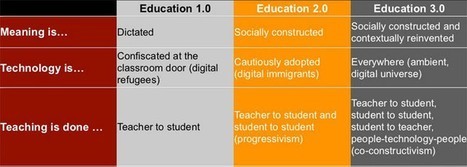




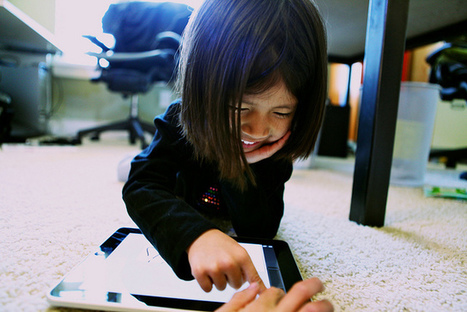

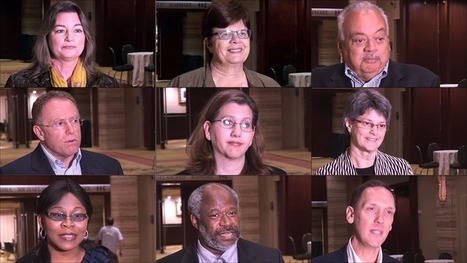


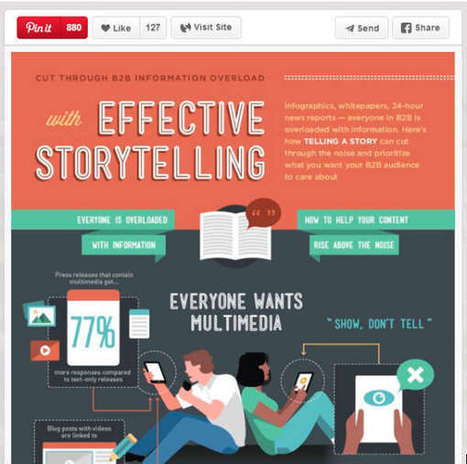
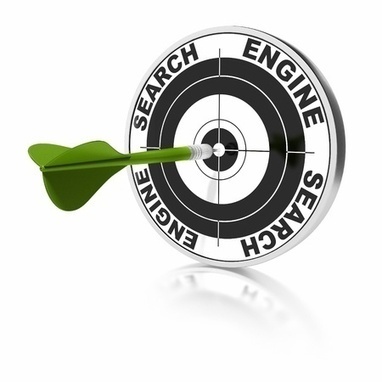
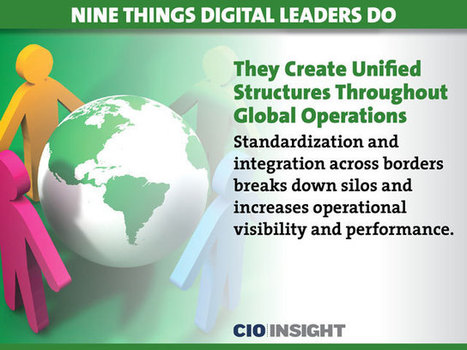
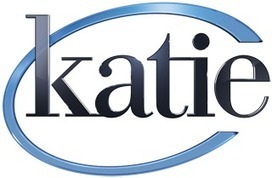

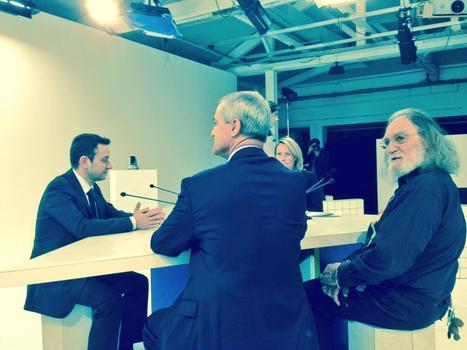
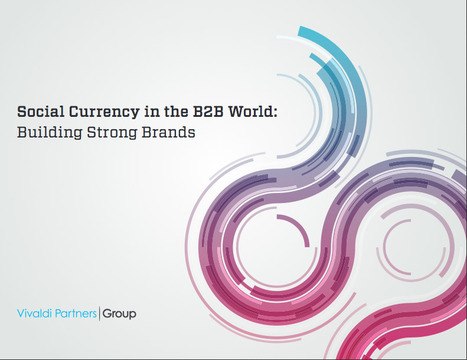






Durante miles de años el ser humano se ha comunicado entre sí, permitiéndole como especie transmitir conocimientos, desarrollar una serie de culturas y progresar tecnológicamente hasta llegar a la sociedad actual.
Pero la comunicación no siempre ha sido igual, y en la actualidad los cambios provocados por las tecnologías de la información y la comunicación (TICs) han llevado a los teóricos a plantearse la situación actual. Este mapa mental trata de recoger un planteamiento muy interesante formulado por el profesor danés Lars Ole Sauerberg, el paréntesis de Gutenberg (si bien recoge ideas ya apuntadas por teóricos de la comunicación como Marshall McLuhan y, especialmente, Walter J. Ong).
El paréntesis de Gutenberg pone de manifiesto que durante la mayor parte de su historia el ser humano se ha comunicado principalmente de manera oral, algo claramente visible en la transmisión cultural de los siglos pre-imprenta. ¿Cómo se creaban los contenidos culturales antes de la llegada de la difusión masiva y todo lo que ello conllevó? Creemos que el mejor ejemplo posible es la Academia platónica, el centro griego del saber donde a través del diálogo se avanzaba en las distintas materias.
Hoy en día estaríamos asistiendo a un resurgir de la oralidad, que “bebe” directamente de las características de la primera oralidad pre-gutenbergiana pero se ve afectada por las características que brindan las TICs. Retomando a Ong, se pasó de una escritura oral como sería la Ilíada (con repeticiones, en verso...) a una escritura "escrita", y ahora vemos surgir una nueva escritura con la espontaneidad y estructura de la comunicación oral pero las características heredadas de Internet y el mundo escrito. ¿El mejor ejemplo? Whatsapp.
En resumidas cuentas, la segunda oralidad sería el resultado de esas dos fuerzas que confluyen formando un nuevo todo, reflejado en el mapa por ese torbellino o campo magnético surgido de la interacción de la oralidad (que aporta colectividad, inestabilidad, contextualidad, etc.) y las nuevas tecnologías (que aportan ubicuidad, interactividad, multimedia...)
No obstante, este nuevo panorama comunicativo no está configurado de manera lineal, y como señala Peter Donaldson pueden darse nuevos paréntesis en los que se intenta el ordenamiento y control del contenido, siendo el ejemplo claro Google. Si bien, como dice el propio Donaldson "Al final del día no hay manera de que el control pueda funcionar"
Y ante todo esto, el periodismo debe preguntarse dónde se sitúa. Los primeros acercamientos al entorno digital no están siendo lo suficientemente adaptativos-utilizando una retórica darwiniana. Ante un nuevo ambiente como es este entorno digital, el periodismo debe adaptarse o morir (y esto segundo sería inaceptable) Así, hoy por hoy los profesionales de la información deben hacer frente a una serie de retos y frenos propios de la nueva forma de comunicarse (la desaparición de la autoría, consumidores acostumbrados a la lectura rápida y "en diagonal", usuarios analfabetos digitales poco versados en la tecnología, etc.)
SI el periodismo no es capaz de reinventarse, de alcanzar la integración que Manovich describe entre el orden y la creatividad, si no es capaz de adaptarse al nuevo panorama comunicativo, corre riesgo de ser devorado por el avance tecnológico-social. Y verá aparecer un enorme "GAME OVER" en su perspectiva de futuro.
Fuentes:
PISCITELLI,A. Post-Gutenberg es Pre-Gutenberg. Quinientos años de textualidad son suficientes. (2010, mayo, 24)
Recuperado de:http://www.filosofitis.com.ar/2010/05/24/post-gutenberg-es-pre-gutenberg-quinientos-anos-de-textualidad-son-suficientes/
MANOVICH, L. El lenguaje de los nuevos medios de comunicación. 2005, Editorial Paidós.
DONALDSON, P. The Gutenberg parenthesis: oral tradition and digital technologies (2010, abril, 1)
Recuperado de:http://web.mit.edu/comm-forum/forums/gutenberg_parenthesis.html
BARICCO, A. Los bárbaros. Ensayo sobre la mutación. 2008, Editorial Anagrama
Práctica realizada con los estudiantes de 4º Periodismo en la Universidad de Zaragoza, España.